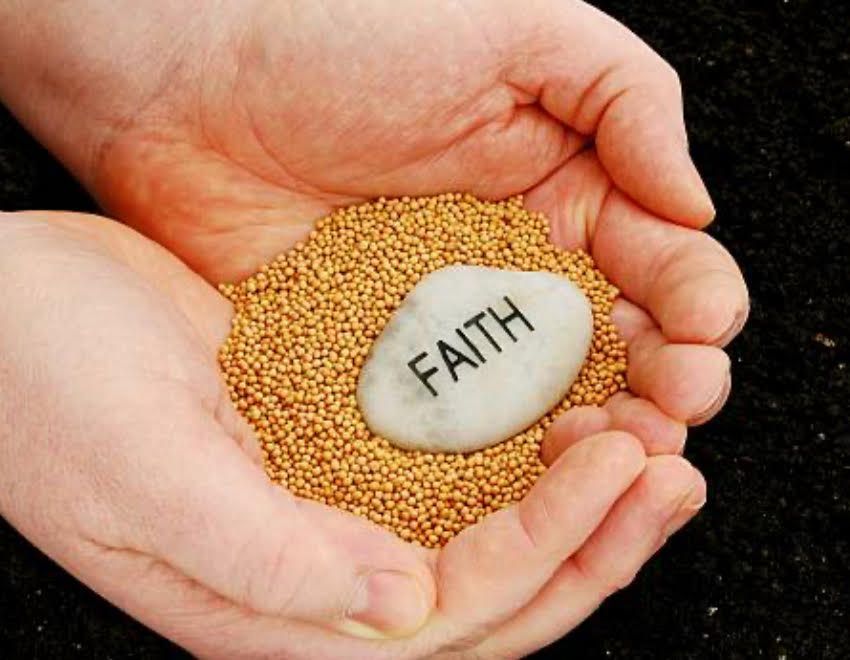27th Sunday in Ordinary Time
October 3, 2025
Gospel Reflection
Luke 17:5-10

Though little is known about the prophet Habakkuk, it is reasonably certain that he lived in the latter part of the 7th century BC. He foresaw and witnessed the captivity of Jerusalem by the Chaldean forces (Babylonians). The anguish he expresses in today’s first reading has to do with seeing how much evil is occurring around him. He wonders why God does not forcefully intervene. The holy city is in turmoil with injustices of all kinds. When God makes known to him that the imminent punishment will come with the invasion of the Chaldeans, Habakkuk poses another question. This good man finds difficulty in seeing how God can allow a pagan nation like Babylon to be the means of punishing the injustice of his people. So this book presents us with a picture of ourselves who can so easily end up questioning God’s role in history. Our limited view of reality together with varying degrees of vanity, self-centeredness and impatience explain this tendency to question God when life becomes difficult. What the prophet must learn is that though God’s plan unfolds slowly, leaving him for some time in the dark, “come it will, without fail.” St. Josemaría Escrivá would often say: “God does not lose battles.” Even though it can seem at times that evil prevails, in fact, it can never have the last word, since nothing compares with the all reaching wisdom and strength of God. However, given the short reach of our reason, we must exercise our faith to acknowledge God’s presence in each and every moment, especially when things get tough. God laments: “See how he flags (wavers, gets slack), he whose soul is not at rights.” How deep does our love of God go? How committed are we to what is morally good, just and decent? How sincere is our love for others? “The upright man will live by his faithfulness.” Trials tend to uncover hidden weaknesses. However, such self-revelation can be beneficial, helping us to be less attached to ourselves and more oriented to God. “Because You, O Lord, are my strength” (cf. Ps 30.5).
St. Luke reports that on a particular occasion some of the Apostles turned to Jesus and, with apparent urgency, beseeched Him saying: “Increase our faith!” In response, Our Lord said: “Were your faith the size of a mustard seed you could say to this mulberry tree, ‘Be uprooted and planted in the sea’, and it would obey you. Mustard seeds are very small. Yet it would seem that our faith is smaller still. How easily we can be discouraged from following through with a good initiative, resulting from a spiritual motive, when we feel tired, or lazy or when we fail to get a quick result or feeling of satisfaction. Those who have risen to great sanctity and achieved great good did not see their dreams realized overnight. They often experienced dryness in prayer, the misunderstanding of others, and obstacles put in their way, at times even by good and religious people. Are we really just looking for quick personal satisfaction? Is our heart really true about wanting to serve God, our families and the Church? Notice the lesson of Jesus that Luke situates here in his Gospel. It is about being prepared to serve without immediate reward. Should a servant expect to end up eating and resting before he has actually finished his duties? The answer is “no, not normally.” The moral is that we should be prepared to persevere in the fulfilment of our Christian and human responsibilities even when short term rewards are lacking. Such behaviour shows a real faith and a true good will. Such is the road to human maturity and, finally, to personal sanctity.
Faith and faithfulness are two words that do not mean exactly the same thing, but for a Christian they are related. Faith can help us cope with difficult situations and regain calm in the face of contradictions and unforeseen challenges. Faith can also enable us to be faithful in our daily commitments of work and family. Faith is always needed when it comes to the fulfilment of religious and spiritual duties; more so, when these do not prove as gratifying as when we first took them up. Making the effort to bring our lives to our prayer and meditation could end up feeling tedious. However, if we persevere in doing so, it will always end up making a difference in how our lives are lived. And what is more we will one day hear Our Lord say to us: “Well done, good and faithful servant, you have been faithful over little, I will set you over much. Enter into the joy of your Master!” (Matt. 25: 21.23)


